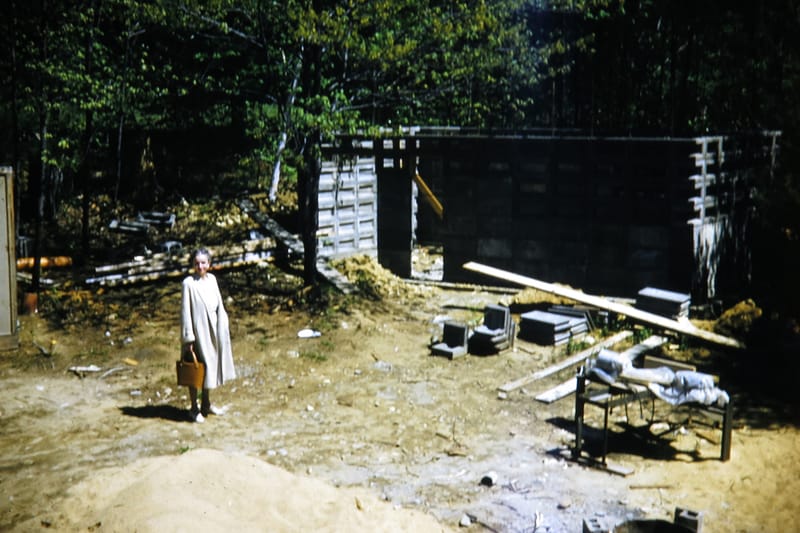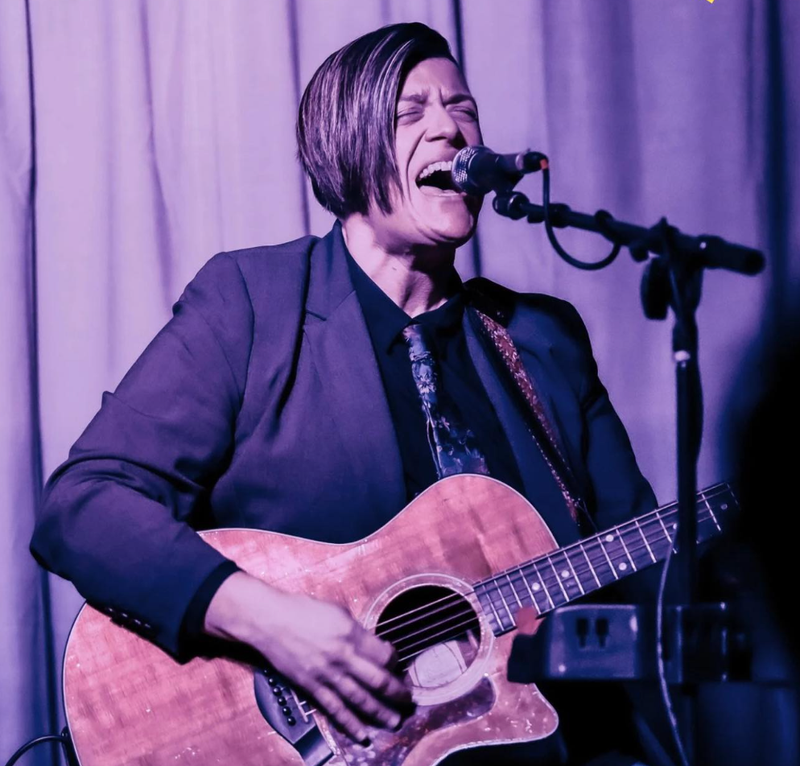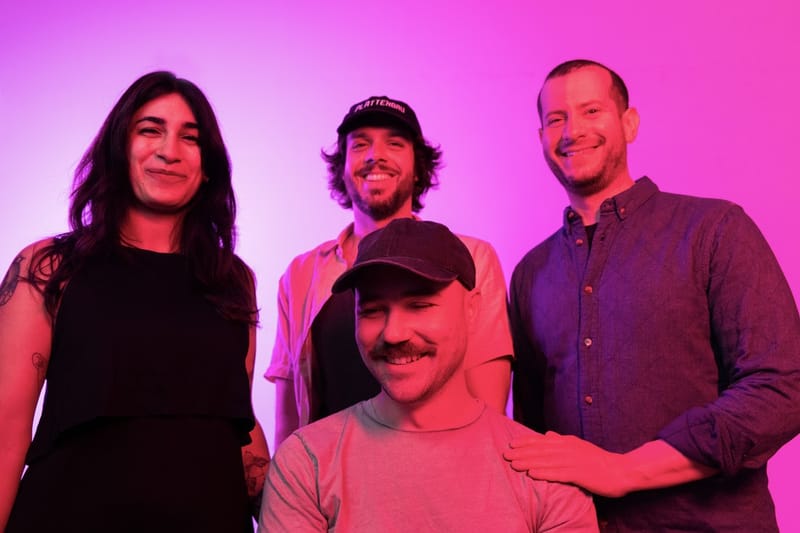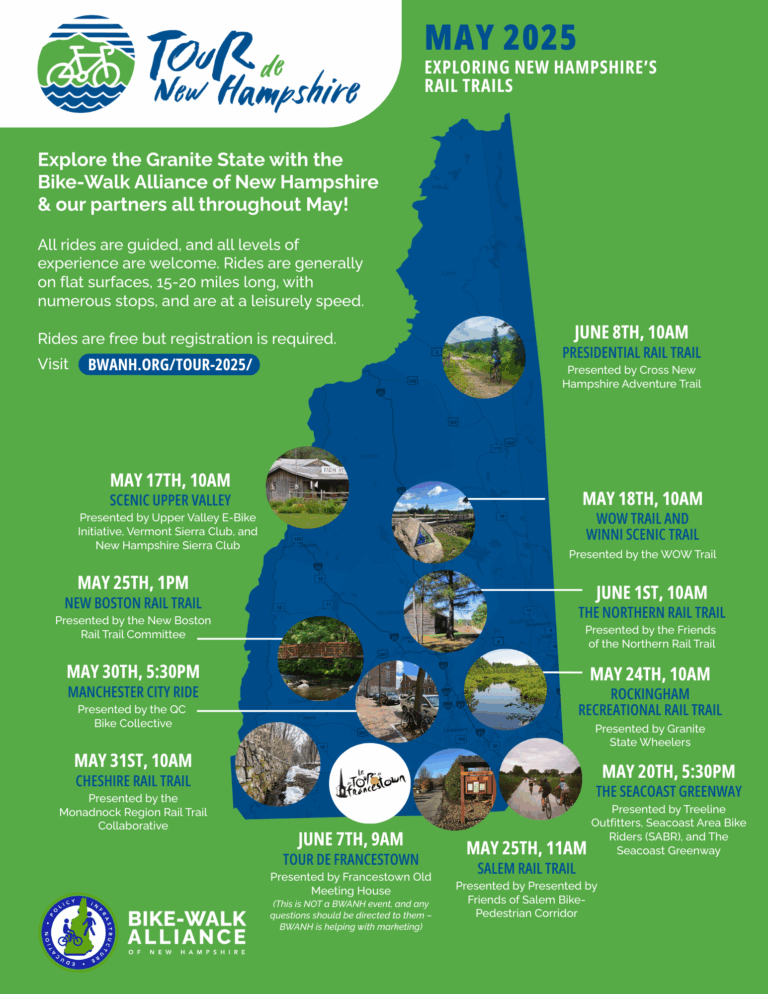The force is strong with tap-dancing phenom Aaron Tolson, appearing July 23 & 24 at the Dana Center
The force is strong with choreographer/producer/dancer and Manchester native Aaron Tolson. Much like Skywalker’s journey initially seems like a series of coincidences, discernment reveals a set of predetermined steps navigating along a pathway of destiny, so too has Tolson experienced a favorable ha
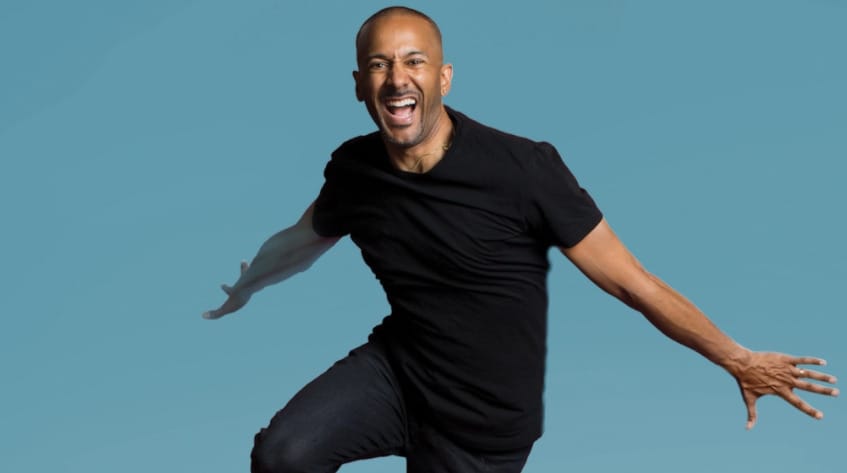

The force is strong with choreographer/producer/dancer and Manchester native Aaron Tolson. Much like Skywalker’s journey initially seems like a series of coincidences, discernment reveals a set of predetermined steps navigating along a pathway of destiny, so too has Tolson experienced a favorable hand of fate.
“I think as I got older, the most appealing thing about Star Wars to me was the master and, and the Padawan, because in tap dance there is a very similar path. You latch onto a master teacher, and you do your best to become as great as them, and that similarity always moved me in a different way,” says Tolson.
Perhaps you saw him on Broadway or Radio City Music Hall performing in Riverdance, at the Apollo alongside his idol Gregory Hines, giving tap dancing lessons to Kelly Rippa and Micheal Strahan, teaching class as an Associate Professor of Dance at Boston Conservatory at Berklee, or just about anywhere around the world. Either way, the good-natured Tolson just can’t keep his dancing feet still. I recently had the opportunity to interview Tolson, who will bring his show Aaron Tolson and Friends to the Dana Center for the Humanities at Saint Anselm College July 23 and 24.
CC: When you’re tap dancing, where does that come from?
AT: When I’m tapping, you know, tap dancing brings me joy. Tap dancing is my job. But tap dancing is my hobby and also what I enjoy studying because there are so many ways to get better. When I’m tap-dancing it comes from deep within. It took many, many years to get to this point. Soon after I learned that I could do it well, I had a goal to be the best tap dancer in the world and that mindset can really prohibit you from achieving your potential. So therein lies my Sith, my dark side. But, what I learned pretty early on after, I guess about 18-years-old, I’m never going to be the best tap dancer in the world. Then the idea was, maybe there is no best tap dancer in the world. Maybe there’s just a bunch of apples and oranges that we do the same thing, but we do it differently. My goals shifted from being the best in the world to be the best that I could be. Inside of me, when I’m tapping, is always to simply do my very best, every single time I put my tap shoes on, whether it’s in a class or on stage. That’s what I’m feeling, to just be my very best.
CC: Let’s go back to the beginning. You started tap dancing when you were 10-years-old?
AT: That’s correct.
CC: How did that come about?
AT: I was a dance studio brother. My sister [Michelle Tolson] was a dancer when she was young and my dad worked so very much that I was always along for the ride. My mother found this studio in Lawrence, Massachusetts, where we were there all day Saturday. One week, she turned to me and said that “next week you’re going to be in class” and I was like, “No-no I’m not.” I was a child actor as well, so I’m doing commercials and little appearances on TV shows. I kept getting far in these roles that people were interested in me for, but I never had another talent. I could act well, I couldn’t sing, I couldn’t dance. There’s my mother’s rationale behind all this, well, now you’re just gonna begin dance class, we’re going to be able to get these jobs. I was going to the studio with my GI Joe’s and I used to have a grand old time all day long, setting up my little things all over the studio, wherever the dancing wasn’t happening. All that was about to end according to my mother, and I was like, I don’t think so, I don’t really want to do that. The next week, I was in dance class and that’s how it happened. My first day of class was ballet and I was pretty bad at it. I’m still pretty bad at it. My second dance class was jazz, and I was also pretty bad at it. By that point, I was in tears, I was staring out the window, trying to look away, because I’m really, really struggling. I had been in the studio, so much that the ideas weren’t foreign to me. It was just applying it to my body just wasn’t easy until tap dance, that clicked for me on day one. I was like, “Oh, this is how this works. I see.” There was this other boy in class, and I have a very competitive nature, so I’m gonna be better than him. Four weeks in and I could do everything he could do, I was like, alright, now I’m gonna be better than her. But yeah, that’s how it all goes.
CC: Tell me about the driving force behind your mom.
AT: Yeah, it starts with pageants and my mother, thinking that my sister and I are beautiful. She puts us in pageants and that’s the kind of a thing that’s happening in the ‘70s and early ‘80s. It went from pageants to agents being at pageants, to baby you could be on TV! The real goal, I think, was for me to be a TV star and movie star. That was what my mother envisioned I think because we would go to New York every week for acting class, from Manchester. We would take an acting class as well, with Bob Collier acting school in New York. I don’t know if they’re still in business or not. While I’m taking acting classes at this place, an audition for an 8-year-old, brown-skinned boy comes up. They sent me on the call while I’m in New York, and I get the job. I went to my first audition and got my first acting job. It was pretty cool. Then I was co-hosting a TV show on WNDS, which was channel 50. Now it’s “My TV” in New Hampshire and it was called “Just Kidding Around.” I would go in on Wednesday’s and we were recorded live. I would learn my lines, do the show and go home. That didn’t seem like it was different from what anybody else did. There was acting, definitely acting, and I think my mom and my dad would see us on television. My dad was just paying the bills. He was a poor man from Alabama trying to give the family a better life. My mother was like, we’re gonna do this and he’s like sure let’s do that and dancing came in, and then nobody knew that that’s the direction we’re gonna go but it was never really the intention.
CC: Who were the artists that you looked up to?
AT: You know, as a young man my mother, and the people around her really, were pushing me to idolize Fred Astaire and Gene Kelly. That was tap dancing to them. Not that it wasn’t tapping. I just didn’t want to look like them, there was no connection. It didn’t feel like me. For years, I’ve been fed, this is what it is and then I go to the movie “Tap” (‘89) with my family. We sat down in the movie theater. Gregory Hines started dancing in that opening scene of the movie and I turned to my mother and I said, “I want to dance like that!” I remember saying those words and we were two minutes into the movie. Then I got to see the whole movie, and Savion Glover of course is almost the same age as me, he was a year older than me and I see him in the movie and I’m like, oh it’s happening, people like me doing what I want to. From that moment on it was Gregory, Gregory, Gregory. I wanted to be Gregory Hines, and as I really started researching [him] I [eventually] got to meet him.
CC: You met Gregory Hines?
AT: Yeah! About four years into my dancing there are tap festivals happening and [at the time] I’m not really aware of that because we’re just not plugged into that circuit just yet. Boston had things going on and there was a tap festival that came to Boston, and I don’t even know what it was called, and all of the masters of that movie [Tap] were in Boston and they sent Savion to Boston to find tap dancers to perform in the show with them. So he comes to Boston. My tapping teacher is saying, hey there is an audition in Boston you should probably audition for it. I don’t really know what it is and I go to this audition and Savion Glover is running the audition but he has a broken ankle so he’s not dancing. One of my tap teachers is actually running the audition, talk about lucky breaks. His name is Josh Silverman. I’m super comfortable in this audition. He’s running the audition because they found a Bostonian to run the call. Savion said what he wanted to say. Josh puts out the material. I’m eating up this material. I’m excited. Halfway through the audition Savion walks over to me and says “why don’t I know you?” and I said, “I don’t know, but you know me now.”
CC: How and how old were you?
AT: Fourteen. There was another boy at this audition, who was killing it like me named Derek Grant. He and I get talking, he and I get the gig. We, Derek, Savion, and I ended up being this trifecta of fun for a couple of months, it was so much fun! Long story short, we got to do the show and the show was with the cast of the movie “Tap.” It was at the Lyric Opera House in Boston. And if we did a good job we were promised to do a show in New York, at the Apollo with Gregory Hines. I danced my heart out, I wanted to get there. I got to dance on that stage, the same stage that Gregory got to dance on. I got to be in that finale with him. He was just so into the kids. He was into where tap dance was going. I got to speak to him then, and in a couple of classes over the years. I got to be in his presence four, maybe five times. Every time the things he said to me were probably the most influential things that ever happened in my tap dance career that helped to make me keep going today. That’s how it all came together.
CC: How amazing it must be, when you are able to not only meet your idols but do what you love with that person.
AT: As you say that I get a chill! I never take it for granted, those moments. Exciting, fun moments that have happened because they could not have happened. You know, I work hard, but there’s a lot of good fortune. That right place, that right time.

CC: Is it good fortune? Is it a lucky break? Do you truly believe that you just so happened to be in the right place at the right time?
AT: You know, that’s an excellent question, because I can’t imagine that I would have been anywhere else. That is something. There’s a reason why I was there at that moment just because it’s still my life. Since I was 14, I just turned 46 and it’s just been joyous. I also believe I’m no Gregory Hines, but the energy that man gave to me. The support, and the excitement, and understanding that he gave me in the short moment that he spent time with me, made me want to do that for as many people as I can, because I got to him, I got to dance with those masters. I got to live in that time, and that time is history to so many people, and I got to see it. I get to share that, what that felt like and that’s why I’m a very hard teacher. But, I’m a hard teacher with love and I still push very hard, because I know that we can create, you know, diamonds. So, yeah, you’re right. I do feel like I was meant to be in that place at that time because there have been seeds that were planted then that inspired my whole life.
CC: What is the best performance you’ve witnessed?
AT: You know, it probably goes back, and it has everything to do with who you are at the moment. It’s gonna go back to that same show that I’m referencing right now. The Apollo theater ‘88 or ‘89 where I got to stand side-stage and watch Gregory Hines just manipulate an audience in a way that only the greatest of entertainers can. He made them laugh. He made them quiet. He made them clap. Whatever he wanted them to do, they did, and what was really funny was standing next to me was Mike Tyson!
CC: What was it like being in the Apollo Theater?
AT: Magic. Simply magic. Again, I’m going to say fortunate. I’ve been able to dance on some of the most famous stages in this world and the Apollo might be the most special stage I’ve danced on. I did the Kennedy Center. I’ve done the Gershwin on Broadway. I’ve done Radio City, the Schubert in Hollywood, I’ve done, you know, a bunch of the theaters around the world that were famous in their own right in their own places. It was nothing like going into that stage door. Going in that backstage door, you are doing something different. There’s so much history, there are so many giants that stood on that stage, and little old me got to dance on that stage as well, and magic! Still, whenever I see a picture of the place, I’m still in awe that I got to dance on that stage. I would love to dance on it again, but it’s a special stage, maybe I’m not meant to dance on it again. I got my turn. I feel that’s a really, really unique place. I guess magic is the best way to describe it.
CC: You’ve traveled internationally. Did you have any idea that tap dancing was going to take you on such a journey?
AT: I’ve been around the world, it’s been really great. Did I think? I didn’t think honestly, my whole approach to tap dance was simply to do my best. After doing my best, then I wanted to be in shows, then getting into a show, I wanted to be the best that I could be in the show. I’ve always been into my work and how I present myself, and what I give and then everything that comes along with it has been extra. Extra would be the right word, because if I had the career I had, that only toured in New Hampshire, for all these years, I probably would still be equally as happy as long as I’m giving my very best every time I get out there. You know, every time I have a performance that is less than stellar to my standards, I don’t forget it. I hold on to that moment. It’s like a basketball player having a bad game. You’re supposed to move forward from it and learn from it, you know, I’ve moved on and learned, but those moments, they stick in my head, like, I don’t want to do that again. Then when I’ve had my very best types of performances, I always want to try to duplicate that, which you cannot, because the circumstances allowed that day to be what it was. I always try to remember what I was doing, and how I approach each performance when it goes one way or the other. But again, I never, never thought that I would spend three months dancing in Australia. Those weren’t ideas of mine, traveling wasn’t something that I ever thought I really wanted to do until I was doing it. Then once I was doing it, it was the best thing ever.
CC: What’s the most exciting thing you’ve experienced in your career so far?
AT: My children being born. They both love tapping. They are 5 and 7. They both have an interest in tap dancing and get this, right now my oldest is in my class, my regular tap class and I don’t even know how to explain what that feels like. It’s just so fulfilling, rewarding, exciting, just to have her there and wanting to do what I do without me forcing it on her. She just had the idea that she wants to dance and sing and be on stage and I want to do the things that I can to fulfill that. But yeah, I mean, my kids really aren’t part of my career. They’ve been born in the middle of all of my good fortune and all of the exciting things that have happened. The most exciting thing, I want to say, getting on Broadway would probably be a definite gigantic highlight. It was a goal for so very long and as I was working toward it, then I had the idea of when you get there, there is more life after that so it can’t be the end-all. Let’s try to get there and if we don’t get there it’s also not huge, but I got there, and I can vividly remember standing side-stage. I started the number on top of the stairs behind the curtain I can vividly remember. It’s like time froze when I took that first step on stage. I purposely took the step on stage and looked out at the audience because there’s only one first time on Broadway, and I can tell you what the lights looked like, the audience even had the blue hue that was coming off the stage. The audience was sold out. I knew where my parents were sitting. There was just the energy and it was Riverdance. I’d been doing it already for a year so, it wasn’t brand new but it was brand new. It was just different and it was special and that type of feeling I wish upon every person in this world to feel that fulfillment and excitement, it’s pretty great.
CC: Do you understand your level of fortune?
AT: Oh yes! Oh, do I! Oh my goodness! I get to dance for a living! This is what people do for a hobby and that’s all I do every day of my life and it’s a gift! My dad worked at Anheuser Busch for 20-odd years loading trucks ‒ that was his life every day so that I could do this. He looked at the back of beer cases constantly, did the job the best he could do it, and that’s why I do the job the best I can do. He is one of the biggest driving forces in my mind. He’s gone for 15 years now but he’s one of the biggest driving forces behind me always doing my very best. His words to me were always, “I want you to be better than me,” he would say that to me weekly if not daily you know, and he was actually the strongest man I’ve ever known. He was actually the kindest person that everybody wanted to be around and that’s somebody I want to be just like. On his deathbed I remember telling him, Dad I don’t want to be better than you. I want to be just like you, a pretty cool father-son moment. It still makes me cry when I think of it but I got to say all the things that I wanted to say to him in the end because we got to spend the last four weeks every day together. It was great. I was ready for what it was.
CC: What was it like for you if you’re going out to acting classes and doing shows on the weekend? Most people aren’t doing that. Were you aware of that?
AT: Well, I wasn’t thinking that it was everyone else’s life. But it was for a lot of people around me. I saw a lot of people, but it was a family that would travel to New York with us. There might be two or three different families that would rotate in and out. Somebody might go once a month, somebody might go once every two months. But, there were some other people interested in trying to follow the same path. But, yes, I just knew that my life was different from the people I went to school with. Also, I was in sports though, I mean, I went to college on a full track scholarship so I was doing stuff at school. I was always doing more. I would do school, I might do a sport after school then I’d go dance class after that. There was more to be done. The only thing that took away from it was hanging out. I didn’t do a lot of hanging out at the mall. I have a best friend to this day, we talk, his name is Leonard. I would go to his house. He was the one kid that kind of broke through and knew what I was doing and would come see me do some stuff. He wasn’t into it at all. He was a big basketball fan but was my friend. He was like, “well, I’ll come see what you are doing,” so it’s funny that I never really worried about what anybody thought about what I was doing because it was just my thing. I wanted to dance. I wanted to be on stage. I wanted to be on TV, and if it took all this to do it, well, then…
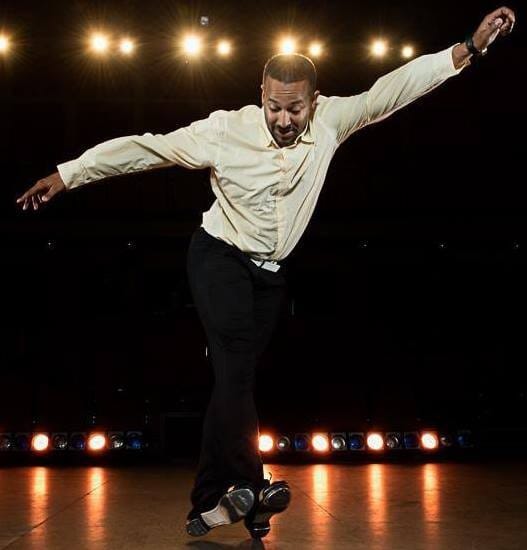
CC: What was it like in school?
When I was on that TV show at a young age, I think I was doing the TV show at like 9 and 10-years-old. The show would come on on Saturday morning. My friends at school would see me on TV and I always had to do silly sketches because it was supposed to be like Sesame Street. But, it was fun and funny and I would go to school, the kids would make fun of me and if you think it is funny ‒ well great. It didn’t bother me, it was like, I get to be on TV!
CC: If you had to say something to the 10-year-old Aaron what would it be?
AT: You know what, there is one thing. I would tell him to not keep your dancing a secret. I wasn’t embarrassed, but I was embarrassed. I wasn’t embarrassed around people that danced but I was embarrassed around people that didn’t dance and I honestly didn’t really let the cat out of the bag until I was kind of making it into the newspaper for different things that I was doing in high school so about my second year of high school everybody knew that I danced and by the time I was a senior I was dancing at the school in front of the school on the stage. I made a strong transition to, this is what I do, this is who I am. It was pretty cool.
CC: Who’s coming up behind you that you’re watching?
AT: So many, there’s so many
CC: There is this amazing female group…
AT: Syncopated Ladies…
CC: Yes.
AT: Yeah it’s Chloe. She’s not like coming up though she’s up! She is here! She’s a good friend of mine too. She’s got her ideas of what she’s doing. It doesn’t fly with all the dance community but I’m on board.
CC: It almost seems like tap, hip hop, step fusion.
AT: Yes! You got it! That is exactly it, and she wants to do arena tours and she got signed to do an arena tour and then COVID. There’s a lot [of people Tolson is watching] because there are more people tap dancing than ever before in history.
CC: How did that happen? Is it because of these dance TV shows?
AT: It’s in spite of those shows.
CC: Ouch…
AT: Yeah. How much tap-dancing is on those shows? None. Very little if any, and when it is on those shows, what do they say about it? They don’t say good things. They say things like, oh, you’re a tap dancer. You know, you can do this as well, good for you, as opposed to when somebody says another style and they’re like, “Oh, you can tap dance as well?” Tap dance has never received the same respect as any other art form. What has spawned this tremendous growth in tap dance? The tap festivals in the dance convention and the dance convention got hip to hiring professional tap dancers from the festival side of the world, meaning Black tap dancers. They got hip, and they started hiring them and it started. But then, of course, there are great tap dancers like Anthony Morigerato who are not Black at all, and they are in that circuit, and they just do excellent tap dancing. I think what has happened is that tap has been shown in such amazing, excellent ways that people are like I want to be able to do that, so let’s do that. There’s a lot of tap enthusiasts across this country, across this world. I would definitely say festivals and conventions. Then with that, come all the people like me that teach so many people. I have probably 15 to 20 students that are all current tap teachers. That’s like my children creating tap dancing, grandchildren. My ideas go to these people and it just goes on and on like that. The idea of what tap dancing is, really started to change in the ‘90s. Savion was really instrumental in that with “Bring In ‘da Noise” and I got to ride that wave, and Riverdance because it was all that percussive dance show at the time, and “Stomp” was out, and just a bunch of really good things were going on. That just opened the door for there to be more tap dancing. It feels like the rise happened in the 90s and it has only become more and more and more, although it is the least seen on stage. There aren’t a lot of tap shows, if any. I mean, there are no shows right now. But, on Broadway, before the shutdown, there wasn’t a tap show available. There were a bunch of other types of shows that might have a tap number. Yeah, it is crazy. But, always, there’s a real art to tap dancing and the rise often is preceded by a show. When “Bring In ‘da Noise” hit Broadway, everybody in the world was tapping.
CC: Do the people around you, the young people that you serve in Berklee, have any grasp on classic tap dancers?
AT: All the students that I teach do because it is part of what I teach. I always say you can’t know where you’re going in tap dance, and this is part of life, you really don’t know where you’re going unless you know where it came from. We’re not doing something new. We’re just doing it well and these people paved the way for us. I spend time each semester talking about masters of tap dance. And I go all the way back to the beginning, to Master Juba. Then I go through vaudeville. Depending on the class and the time, but definitely, at Berklee, they get the full package. They have to know. I make them know. My regular students at the regular dance studio get less of the full package but they get an earful constantly about people that have done it before so that they can know. I am sure to bring up who has been my inspiration. Often, the more interested and talented the student is, the more I will discuss specifics, “Hey maybe you should research Diane Walker because you dance like her, or you could dance like her. Or, you like to be athletic. You know, The Nicholas Brothers were the epitome of it. They were the best. Let’s look at them.”
CC: What does the future hold for you?
AT: Oh, you know, everything. I’m not really done. This Aaron Tolson and Friends show that I’m doing is an opportunity to showcase so many talented people I get to encounter in my life.
I have singers, two of them from Berklee and one Plymouth State University and the other is a former Miss New Hampshire. I have a trio of tap dancers, three of my very best students. I have a hip-hop dance group, a very good friend of mine who is an excellent hip-hop dancer, and this jazz trio from Boston. I happen to teach his daughter tap. I said, people, let’s do this thing together. Let’s get on stage again! And then everybody jumped at that. The show is about an hour long. I have a secret weapon on one of the shows. I’m not sure you’ll see her. I have a prodigy piano player that’s going to show up which is cool. Also, I think I’ll get back to motivational speaking and writing. I have written the first of two books, of a children’s book series. The illustrator is halfway through the first book. We’re getting ready to release that, I imagine by May, and I have my motivational book about all of my successes and failures in my life, how it affected me, and how you can apply it to you. You know, same old, dance every day, do as much as you can.


